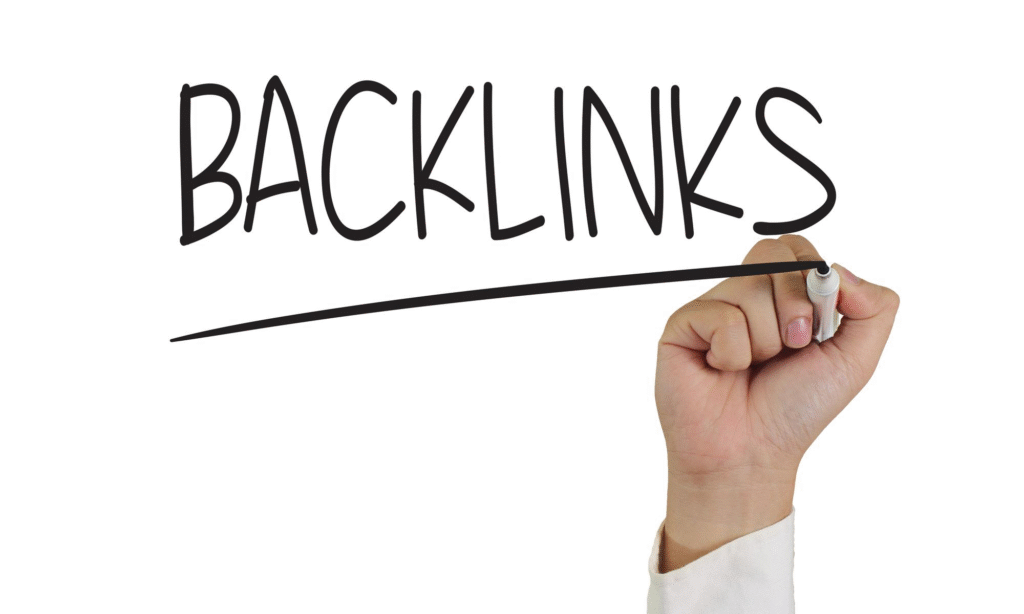If you run an ecommerce site, you already know how important it is to show up in search results. But do you know how powerful a strong backlink strategy can be? Ecommerce backlinks play a big role in helping your site rank higher on search engine results pages (SERPS) and reach more potential buyers.
In this blog, we’ll explore useful link building strategies tailored for ecommerce sites. You’ll learn how to create content that attracts natural backlinks, use broken link building, tap into guest posting, improve internal linking, and more. We’ll also explain why building a solid backlink profile is essential for long term growth.

Table of Contents
What Are Ecommerce Backlinks and Why They Matter
When someone links to your site, that’s a backlink. Each link is like a vote of confidence in your content. Search engines like Google view these “votes” as a sign that your site is trustworthy and useful. The more high quality backlinks you have, the higher your site can rank in the SERPS.
For ecommerce sites, ranking higher means getting more visitors. More visitors mean more chances to sell your products. That’s why investing in a smart ecommerce link building plan is so valuable—it drives traffic and increases sales over time.
1. Build a Strong Backlink Profile with Relevant Content
Creating content is the foundation of any backlink strategy. But it needs to be content people care about and want to share. For ecommerce sites, this can look like:
- Informational blog posts: Explain how to use your product or address related topics.
- Product comparisons and guides: Share clear value by helping customers make decisions.
- Industry roundups or trends: Connect your products to bigger trends or seasonal events.
Always aim for content that gives value first. When content is shareable, it’s more likely to earn natural backlinks from other sites.
2. Use Broken Link Building to Get Quality Links
Broken link building is a clever way to gain backlinks from existing websites. It works like this:
- Find broken links on sites that are relevant to your niche.
- Check what page they are meant to link to.
- Contact the site owner and suggest your content as an updated option.
For example, a blog might link to a tool guide that no longer exists. If you have similar or better content, offer your page as a replacement. This helps the site fix a broken link—and you get a new backlink.
3. Expand Reach with Guest Posting
Writing guest posts on reputable blogs is another effective strategy. Here’s how to do it right:
- Make a list of top blogs in your niche.
- Contact them with a clear pitch: your topic, why their readers will care, and how it’s different from what’s already out there.
- Include a natural link back to your site in your bio or content where it provides value.
Guest posts help your site get in front of new audiences and earn high-quality backlinks—helping your link profile and site authority grow.
4. Leverage Internal Linking for SEO Boost
A good internal linking structure helps search engines understand which pages are most important. For ecommerce sites, you can link from blog posts to product pages, guiding visitors and improving SEO performance.
Example: In a blog post about “best hiking boots,” link to your product pages for boots. That helps spread link value (called “link juice”) across your site and improves visibility for both blog and product pages.

5. Share Smartly on Social Media to Encourage Backlinks
Social media itself doesn’t build traditional backlinks, but it helps your content get noticed. When your links are shared on Facebook, Twitter, or Pinterest, more people see them—and some may link to you from their blogs or websites.
A good way to do this:
- Post your top blog content
- Highlight product features or data snippets
- Ask followers to share or comment
These activities drive traffic and can lead to backlinks down the road.
6. Guest Feature or Product Round-Ups
Many blogs publish product round-ups like “Top 10 Best Wireless Earbuds.” Getting featured in these lists can earn valuable backlinks.
To get included:
- Look for publications that create round-ups in your niche
- Reach out with your product details, images, and explanation why it fits their list
- Provide honest, useful info to make it easy for them to include you
Being featured builds both backlinks and brand awareness.
7. Create Link-Worthy Content Like Data Reports
If you can gather valuable data—like average prices in your niche, customer survey results, or trends over time—you can create content that sites love linking to.
Even small online shops can produce something informative. For example, collect customer usage data or compile tips for using your product. These data-driven pieces are more likely to be picked up by other blogs and linked to as a resource.
8. Use a Case Study for Link and Trust Value
A case study is a powerful piece of content. Use your real customer success stories to show how your product solved a problem, saved money, or improved their life.
Case studies are compelling. Other sites may link to them as proof, and they help convince visitors that your product works. Plus, they build your brand authority—making it easier to attract more natural backlinks.
9. Stay Consistent with a Long-Term Approach
Effective backlink building isn’t one-time. You need a long term plan that keeps delivering value. Set goals like:
- Publishing one guest post per month
- Doing two broken link outreaches every week
- Updating your blog with fresh data or guides every month
Consistency builds trust with search engines and keeps your site growing in authority.
10. Measure Results and Adjust
Use tools like Google Analytics, Ahrefs, or SEMrush to track:
- New backlinks
- Which pages are earning links
- How your rankings change over time
If a certain strategy gets more links, invest more in it. If something doesn’t work, pivot to a different tactic. A data-driven approach ensures your time is spent wisely.

Why Choose Professional Help for Ecommerce Backlinks
As a site owner, you could try these strategies yourself—but they take time, research, and persistent effort. That’s why many ecommerce businesses partner with professionals who offer backlink strategy and link building services.
At ScaleUp SEO, we help ecommerce sites:
- Research link opportunities
- Create content and case studies
- Perform outreach (guest posts, broken link building)
- Track and report results
We give you the time and focus to run your store while your backlink profile grows.
Final Tips for Ecommerce Backlinks
- Think like a blog post creator: people share helpful, original content
- Keep your content evergreen—so it stays relevant longer
- Always check broken links before pitching a replacement
- Focus on quality, not quantity—one good link matters more than many weak ones
- Plan link building as an ongoing part of your work
- Track your progress and tweak your plan based on data
When you follow this approach, you build a backlink profile that lasts—and that pays off in both traffic and trust.
Ready to Grow Your Ecommerce Site?
Ecommerce backlinks are more than just a ranking tool—they’re a path to trust, visibility, and sustainable growth. If you want help building content, researching opportunities, or running outreach campaigns, ScaleUp SEO is here for you.
We focus on ecommerce link building, high-quality content, and natural backlinks to help your site stand out in the SERPS. Reach out today to build a plan tailored to your store. Let’s grow your business together, one high-value backlink at a time.
Get Started with ScaleUp SEO
If you’re looking to improve your online presence and make more sales, investing in an effective SEO strategy is essential. At ScaleUp SEO, we take care of all aspects of SEO, so you can focus on what you do best.

Whether you need help optimizing your Google Business Profile, creating engaging blog posts, or improving your search engine rankings, our team has the expertise to deliver results.
Contact ScaleUp SEO today! Contact the top SEO agency in Florida.

Comments are closed